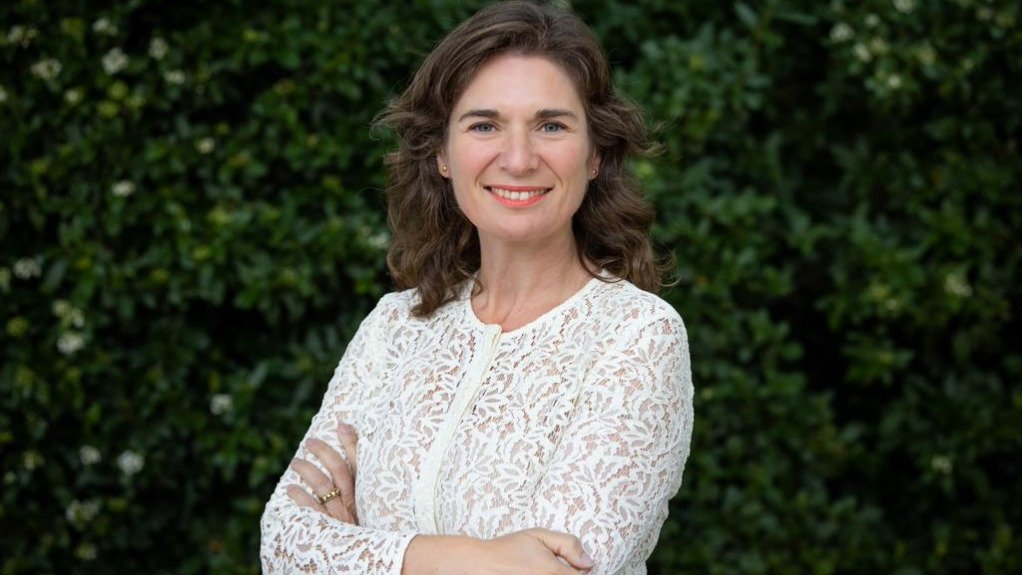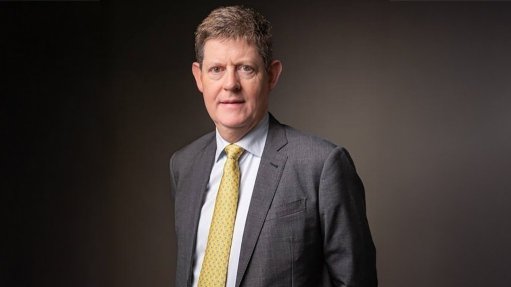Improving sustainable minerals value chain


ESTELLE LEVIN-NALLY The mining sector needs to become more sophisticated in how it handles artisanal and small-scale mining
Driving a transition to a just and more sustainable minerals value chain in Africa can be a key catalyst towards protecting human rights and delivering a sustainable future worldwide, highlights mining advisory firm Levin Sources CEO and founder Estelle Levin-Nally.
Levin-Nally chairs the sustainability committee of the Investing in African Mining Indaba 2025 and is also a member of the Indaba’s leadership committee.
She regards shifting cultures as one of the fundamental strategies required to create more sustainable mining practices and the company argues that equity-seeking groups should be empowered to have a greater influence over how mines are designed and operated.
Greater diversity in leadership positions is an effective way of tackling prejudice, bias and intolerance, which hampers good decision-making, notes Levin-Nally.
There is also a need, in terms of popularising circularity, to design and operate mines to eliminate waste and become climate and water smart. Value from a resource can be maximised by remining tailings and finding new markets for other waste products, while focusing more on nature-based solutions that help with water purification or carbon sequestration to lower liabilities and benefit local and international communities.
Levin-Nally also stresses that the sector needs to become more sophisticated in how it handles artisanal and small-scale mining (ASM), such as through incentivising and enabling industrial miners to take a human-rights-based approach, and that it needs to assess this topic more sensitively.
The implementation of international development finance institution the World Bank’s new position paper on ASM – which promotes an evolution in focus from ASM formalisation to professionalism and legitimisation – provides an “exciting pathway” towards developing more sustainable ASM communities in Africa, she says.
Levin-Nally also credits international gold trade association the World Gold Council’s initiatives to support central bank buying schemes to find ways of uncoupling ASM political economies from the prevailing predominant servicing of organised crime and illicit economic interests. In this way, such networks can be used as potentially transformative reconfigurations of ASM value chains, which she adds, could be “game-changing”.
Sustainability Challenges, Future Expectations
Mining companies and market nations are increasingly in competition to get access to African minerals. This greater sovereignty of African producers can create a challenge for some companies to remain competitive, but it also presents an opportunity for African countries that hold premium strategic assets of in-demand minerals.
However, she warns of de-democratisation and the increasing risk of conflict in some parts of Africa posing significant challenges for the continent’s citizens, mining companies and mineral offtakers.
Moreover, foreign State interests are becoming increasingly embedded as the providers of security for political regimes in certain African countries, in exchange for access to mineral rights and mines. This growing political risk is proving to be of high importance to some mining companies. The situation recently came to the fore with the detention of mining executives and employees, in Mali, in November 2024.
Autocratic governments also increase the likelihood of corruption, and the prevalence of human rights violations, as it is more difficult for civil society to play a role in advocacy and prevention, for citizens to claim their rights and for victims to access remedies, Levin-Nally concludes.
Article Enquiry
Email Article
Save Article
Feedback
To advertise email advertising@creamermedia.co.za or click here
Press Office
Announcements
What's On
Subscribe to improve your user experience...
Option 1 (equivalent of R125 a month):
Receive a weekly copy of Creamer Media's Engineering News & Mining Weekly magazine
(print copy for those in South Africa and e-magazine for those outside of South Africa)
Receive daily email newsletters
Access to full search results
Access archive of magazine back copies
Access to Projects in Progress
Access to ONE Research Report of your choice in PDF format
Option 2 (equivalent of R375 a month):
All benefits from Option 1
PLUS
Access to Creamer Media's Research Channel Africa for ALL Research Reports, in PDF format, on various industrial and mining sectors
including Electricity; Water; Energy Transition; Hydrogen; Roads, Rail and Ports; Coal; Gold; Platinum; Battery Metals; etc.
Already a subscriber?
Forgotten your password?
Receive weekly copy of Creamer Media's Engineering News & Mining Weekly magazine (print copy for those in South Africa and e-magazine for those outside of South Africa)
➕
Recieve daily email newsletters
➕
Access to full search results
➕
Access archive of magazine back copies
➕
Access to Projects in Progress
➕
Access to ONE Research Report of your choice in PDF format
RESEARCH CHANNEL AFRICA
R4500 (equivalent of R375 a month)
SUBSCRIBEAll benefits from Option 1
➕
Access to Creamer Media's Research Channel Africa for ALL Research Reports on various industrial and mining sectors, in PDF format, including on:
Electricity
➕
Water
➕
Energy Transition
➕
Hydrogen
➕
Roads, Rail and Ports
➕
Coal
➕
Gold
➕
Platinum
➕
Battery Metals
➕
etc.
Receive all benefits from Option 1 or Option 2 delivered to numerous people at your company
➕
Multiple User names and Passwords for simultaneous log-ins
➕
Intranet integration access to all in your organisation



















